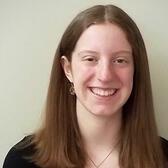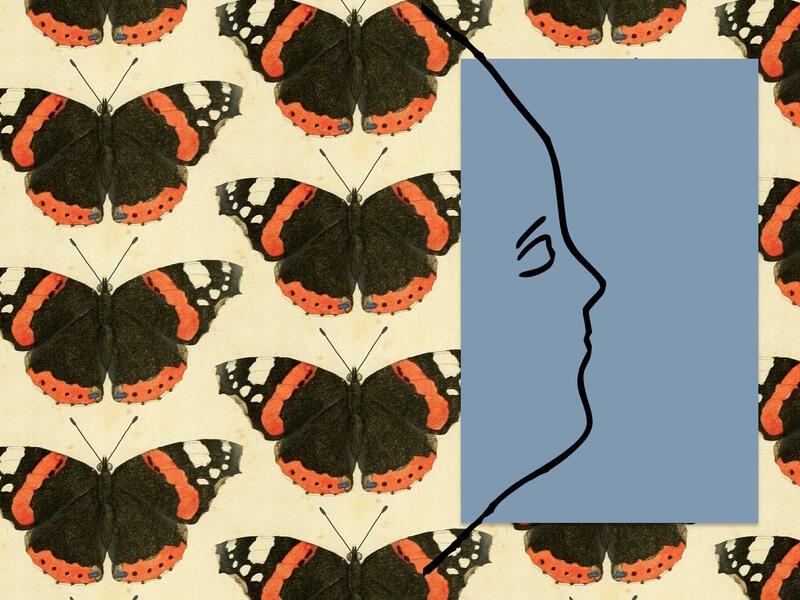My Jewish Feminist Metamorphosis
“‘Make good choices,’ ‘do the right thing,’ and ‘think before you act.’ I’ve been hearing these words since I was a little kid. When I was younger, all I knew was that if I made the ‘wrong’ choice, I got sent to my room. However, now I know that choices are extremely important and they have consequences far beyond a few minutes in timeout. Our choices can have a butterfly effect, meaning that one choice can set off a chain reaction of consequences.”
On May 20, 2017, I stood in front of my congregation and talked about the butterfly effect for my d’var Torah. Little did I know that on that same day, I would experience my own version of the butterfly effect and set a series of chain reactions into motion that would make clear to me how intertwined my Jewish and feminist identities are (in so many beautiful and nuanced ways), and how these identities make up who I am at my core.
Before my bat mitzvah, I didn’t want anything to do with the Jewish community publicly. After a first encounter with antisemitism at school (when a boy on the bus told me I had no right to be alive), I tucked my hamsa necklace into my uniform and stopped talking about my Jewish summer camp and holiday festivities in an effort to hide everything about me that alluded to my religion.
I was overwhelmed with anxiety the week leading up to my bat mitzvah. I kept waiting for the other shoe to drop—maybe an antisemitic comment whispered under someone’s breath, or another swastika drawn onto a ruler. My stomach lurched when my non-Jewish friends told me that they were coming to my service; I didn’t want them to see the Jewish side of me because I was afraid of being shamed for my Jewish identity by my peers.
Just as I never talked about my Judaism, I didn’t talk about being a feminist either. “Feminist” was a loaded word at my school, surrounded by a lot of stigma. Concealing this part of my identity didn’t fully stop me from speaking my mind—I still wrote papers about abortion rights and had conversations with friends about the importance of having women represented in government. However, I was reluctant to openly call myself a feminist (though I most definitely was one). Instead of pride, I held shame about both my Jewish and feminist identities.
After a week of nerves, I finally stood in front of my congregation. Wrapped in my grandfather’s tallis, I felt my worries slowly start to ease. Although I was wearing my grandmother’s star of David necklace tucked into my dress, I began to realize that that wasn’t where it belonged—instead, it deserved to be seen by the world. Standing on the bima next to my rabbi (who has become my role model) made me see the beauty in the Jewish community. Even though I was still embarrassed that my friends would see my grandparents kiss me on the cheek and hear my boisterous family kvell about me, it dawned on me that I should own my Jewish identity proudly. On that day, I started to confront my internalized antisemitism.
After my bat mitzvah party was over, I was excited to take part in a family tradition of eating fries at Detroit Coney Island. This experience was indeed unforgettable, but in a different way than I'd expected. As I waited by the door of the restaurant to leave, a man approached me and whispered, “Hey babydoll.” This was my first time being catcalled. I can’t think of a more ironic welcome to womanhood.
I spent the next week feeling disgusted, but not with the man who catcalled me or our society that condones this behavior by men. Rather, I scolded myself for wearing a dress that must have been “too slutty.” Despite previously telling my friends that victim shaming is never okay, I couldn’t help but blame myself for this incident.
Just as I confronted my internalized antisemitism at my bat mitzvah, I also began to reckon with my internalized sexism, after this incident made me feel overwhelmed with shame. I realized that instead of shying away from the feminist label, I should immerse myself in the movement. I needed to embrace the feminist identity that I'd already begun to form in order to stop myself from internalizing the toxic ideas I saw in the media and my community.
Until that night, I was trapped in a cycle of oppression with no way out. My internalized antisemitism and sexism had stopped me from owning the two most central parts of my identities, my womanhood and my Judaism, and had prevented me from making necessary change within myself and my community. The concept of fighting for a better world is both inherently Jewish and feminist. After my bat mitzvah, I went back to wearing my hamsa necklace outside my uniform, openly shared stories from summer camp and family Shabbat dinners, and began to proudly call myself a feminist.
This isn’t to say that I don’t still struggle with embracing my identity, because I do. To this day, I don’t tell people that I’m Jewish until I trust them, and I constantly worry about coming off too strong with my feminist beliefs. It’s not easy to love ourselves when the cycle of oppression makes us feel ashamed about any part of our identities that may make us a minority. But when we start to break this cycle and create new norms, we set a butterfly effect into motion that allows us to embrace who we are without fear. I’m proud to be a Jew, a woman, and a feminist. While it may not always be easy to hold these identities, they are essential to who I am, and I’m learning to appreciate the power in being a Jewish feminist woman.
This piece was written as part of JWA’s Rising Voices Fellowship.








Do you offer any zoom training for adult bat mitzvah?
I love your nuanced depiction of your struggle to accept your Jewish and feminist identities. What I appreciate even more, however, is your acknowledgement that acceptance is a process, not a switch that can be flipped— I think we can all draw strength from this important reminder.